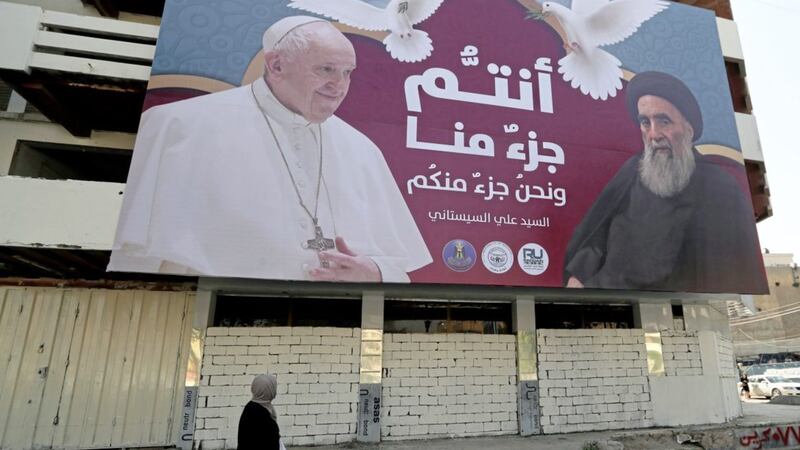It is ironic that a country which was once described as hell on earth was also the birthplace of Abraham who gave the world three great religions – Judaism, Islam and Christianity.
Iraq has been a troubled nation since it was carved out of the Ottoman Empire and given to the British. First a monarchy and then a republic after independence, it fell into the hands of the Arab Socialist Ba’ath Party in 1968.
Once known as the ‘cradle of civilisation’ - Iraq was where the world’s first writing system was developed – but it is better known today for the bloody rule of Saddam Hussein and two recent wars led by the United States: the first a grand coalition to drive Saddam out of Kuwait after he invaded the country; the second an ill-judged revenge attack by George W Bush.
Tony Blair’s reputation will ever be sullied by association. He was Bush’s enabler – bringing the UK into the war on the basis of the fiction that Saddam possessed weapons of mass destruction.
The number who died in that conflict is still not known – hundreds of thousands of innocent people lost their lives, possibly over a million. While the war itself was indefensible, an even greater crime was the mismanagement of the peace. Having stripped the country of any semblance of government, the allies walked away and left the factions there to fight over the place.
The result was further death and destruction as ISIS used terror to impose an Islamic state. Appalling crimes against humanity were perpetrated – without, it must be said, any sense of responsibility in Washington or London.
Following the defeat of ISIS, civil society is trying to reassert itself – constantly undermined by the continuing tensions in the region – not least between the United States and neighbour Iran. Poverty is rife, and Covid-19 has taken its toll in a country whose healthcare system has been ripped apart.
Understanding the background makes Pope Francis’s visit to Iraq last weekend all the more remarkable. Previous planned visits by John Paul II and Benedict XVI had been called off, and there was more than enough justification to cancel this one – not least the risk of spreading Covid at the inevitable gatherings.
The pope’s belief that God would protect the faithful is at odds with the science of Covid. But Francis has shown himself to be stubborn at times, and he was determined this visit to Iraq would not be put off.
It may go down as one of the most important moments of his pontificate. Ostensibly the visit was to show solidarity with the dwindling numbers of Christians in the country – reckoned now to be in the region of 250,000.
The two are not unconnected, but it is the rapprochement with Islam that has the power to be transformative. The world will not be at peace until the forces of Islam and Christianity find a way of coexisting in an atmosphere of mutual respect.
Of all the images from the trip, the most potent was an unassuming shot of the pope, dressed in his traditional white, sitting alongside the Shiite grand ayatollah Ali al-Sistani in black. al-Sistani’s voice has the power to bring down governments, and the battle against ISIS was won in part because he urged young Shiites to join the army to fight it.
After their meeting, the pope got the words he wanted when al-Sistani released a statement saying Christians had to right to live like all Iraqis “in security and peace and with full constitutional rights”.
Putting his faith in their common brotherhood with Abraham, the pope said: “Hostility, extremism and violence are not born of a religious heart: they are betrayals of religion.”
He went on to say: “Believers cannot be silent when terrorism abuses religion.”
That can be read as a rebuke to those who have distorted Islam in pursuit of power, and who have inflicted enormous pain on innocent people across the world. But it is also a rebuke to so-called Christians – here and abroad - who have demonised Muslims, victimised them, and marginalised them.
Increasingly frail, and under attack from a reactionary Church within the Church, Francis knows he has a limited time to cement his mission. More trips are planned, including to Lebanon (another victim state), he is determined to make a difference and bring people together. But the world needs to respond too – civil society and elected leaders - if we are to build a global society built on mutual respect for our common humanity.








